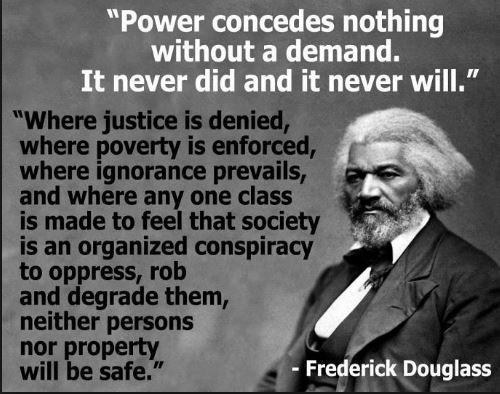It took a long time before I stopped hearing her calling in my head. Asking me, asking me:
Do you know what love is?
Sure I know.
A boy loves his dog. – Harlan Ellison

At the end of HBO’s Games of Thrones (GOT), when I watched Jon Snow ride away into the north with Ghost trotting ahead, his best friend Tormund by his side, I thought of Harlan Ellison’s ending to his story “A Boy and His Dog.”
Like Jon Snow, Ellison’s teenage character, Vic, chose to kill a woman who loved him and who had sacrificed for him. Vic killed his lover, Quilla June, so he could feed her to his sick and injured dog, Blood, who he depended on for survival.

In GOT, Jon Snow killed Daenerys to save what was left of his adoptive family, the Starks, and to save Westeros. Some might claim this allowed his emotional survival. Faced with bad choices, he decided he could live with killing Daenerys. However, unlike Vic, HBO’s Jon did not need to kill Daenerys for himself or others to survive. He was influenced by Tyrion and Arya, and he had other options that were embarrassingly ignored in the show’s poor adaptation. Based on what we know of the Jon Snow of ASOIAF, the Jon Snow of HBO’s GOT was drawn as an easily-influenced personality. The Jon Snow of the books is shrewder and more decisive. The book series is unfinished, and we do not yet know how the character arcs of Jon and Daenerys will conclude.
As an ASOIAF book reader, I am comforted to know that in the books, Daenerys is still alive and is midway through her quest to reclaim Westeros. George R.R. Martin is still writing his epic series, and although we are told that the show’s end is similar to the books, we won’t have confirmation until the final book is published.
The Resurrection of Daenerys
After the show’s end, fans of Daenerys immediately began writing about her resurrection and representing it in fan art. There is some foreshadowing of this possibility in the books. Daenerys may be resurrected by the red priests of R’hllor in Pentos.
Many fans know that “All that Daenerys wanted back was the big house with the red door, the lemon tree outside her window, the childhood she had never known” (Daenerys I). Prior to being told this, readers also learn of another of Daenerys’s desires.
Let’s recall the scene in Martin’s first volume of ASOIAF: A Game of Thrones. On page 21-22, Daenerys’s brother Viserys is preparing to marry Daenerys off to Khal Drogo, a powerful Dothraki horse lord. Viserys says., “When they write the history of my reign, sweet sister, they will say that it began tonight.” As we know, Viserys lost his quest early, and his statement actually marks the start of when the history of Daenerys’s reign began. However, soon after Viserys’s comments, we are again reminded of what Daenerys really wants.
When he was gone, Dany went to her window and looked out wistfully on the waters of the bay. The square brick towers of Pentos were black silhouettes outlined against the setting sun. Dany could hear the singing of the red priests as they lit their night fires and the shouts of ragged children playing games beyond the walls of the estate. For a moment she wished she could be out there with them, barefoot and breathless and dressed in tatters, with no past and no future and no feast to attend at Khal Drogo’s manse.”
This section signals Daenerys’s beginning and her end. Perhaps, after resurrection, she will find herself with no past or future and free to live the simple life she wants.
But until we know for sure, there are excellent stories of Daenerys’s resurrection on Archive of Our Own. Her Impossible Miracle is a lovely story by BNC about “forgiveness and moving on.” Rebirth of the Dragon by Darklordi examines Daenerys’s dreams after her resurrection and her travels in Asshai. These and similar stories have helped fans establish Daenerys as a folk hero. Fan art has also captured the spirit of the resurrection of Daenerys.

Daenerys in Modern Folklore
Folklore, and all stories we love, represent our individual and community values. As Bill Ivey explains in his 2007 address to the American Folklore Society “folklorists know that individuals and communities organize meaningful lives by negotiating the tug-of-war between tradition and autonomy” through stories.
George R.R. Martin, Ellison, and other writers draw on ancient folklore to depict elements of fantasy and reality: The lone male, the knight in shining armor (which Vic and Jon promised to be). These archetypes have been the traditional centers of folkloric inspiration.
But the warrior goddess is another long-admired archetype, as is that of the mother. Daenerys’s personality merges the warrior goddess and mother archetypes. Admirers of the name Daenerys have tried to piece together Martin’s inspiration for her name and the meaning behind it. Some interpret the name to mean “God is judge of my destruction” or “God is judge of my excellent purpose.” Another interpretation is “a mixture of Korean Dae (“great, greatness”) and Welsh Nerys, meaning ‘lord’ or ‘chief.’
Daenerys’s fans are inspired by what she represents. In both the books and show, Daenerys’s actions represent equality, loyalty, fairness, liberation from bondage and poverty, and an intercultural awareness represented by few others in Westeros, except for Jon and perhaps Sam. In our present state of global chaos, I cannot accept that these values will not prevail. That is why the death of Daenerys impacted me to such a degree that I am still ruminating on it over a year after the show’s end. The end of GOT was a statement about those values.

The story implies that these positive values can get out of hand and that they must be put down along with the strong women who represent them. I reject the implication that the best we can do is live like common folk under the global surveillance of a Bran Stark, while the lords drink, frequent brothels, and play their game of thrones.
George R.R. Martin seems to question these 1960’s values in a 2019 interview where he alludes to his wish that readers make their conclusions about the ethical choices of his characters. He mentions the turbulence of the 1960s and says “I look back on that era now and you know I ask myself that question did we, were the protests justified… did we do the right thing… did we do the wrong thing? Should we have gone further?” … Is violence ever justified to oppose evil in the world if so to what extent is evil ever justified…?”
While I admire Martin’s quest to have readers think deeply about ethical dilemmas, such as when to use violence to confront evil, this statement ignores that vital human rights were advanced during the 1960s. Civil rights, the war on poverty, and women’s empowerment: These are the same values represented by Daenerys. Slavoj Zizek eloquently expands on the rejection of these values in his article titled “Game of Thrones Tapped into Fears of Revolution and Political Women and Left Us No Better Off Than Before.”
I know what love is.
Daenerys is everywhere now. Her spirit is found in Taylor Swift’s songs to politics to the heroic female captain of a ship who saved refugees and immigrants floating adrift on the Mediterranean.

To paraphrase Ellison, it will take a long time before I stop hearing Daenerys Targaryen calling to me. Like the goddess Athena who sprang from Zeus’ head, Daenerys is the daughter of George R.R. Martin but no longer under his control.
Adaptations and Fan Fiction
Game of Thrones is a book adaptation that veered into fan fiction when the showrunners ran out of material. Blaire Luna brilliantly makes this point in her analysis “Can We Go Back To The Fanfiction Episode?” when she describes Episode 2 of Season 8 “A Knight of the Seven Kingdoms” as “An episode that was taken straight from the depths of Archive of Our Own.” But I’m not saying this is a bad move on the part of the show’s writers in comparison to the rest of the episodes of the season. Maybe we should have had the fans take over the writers’ room.
Hellekson and Busse, in the The Fan Fiction Studies Reader offer a good definition of fan fiction.
If we think of it as a form of collective storytelling, then the Iliad and the Odyssey might be tagged as the earliest versions of fan fiction. If we think of fan fiction as a response to specific written texts, we can trace fan fiction back to the Middle Ages. If the term is understood to include a legal component, then fan fiction could not have existed before the development of authorial copyright, so the first fan fiction could, for example, be some of the rewrites of Jane Austen by her readers. If the term requires an actual community of fans who share an interest, then Sherlock Holmes would easily qualify as the first fandom, with fan-written Holmes pastiches serving as the beginnings of fan fiction. Finally, if we look at it as a (sometimes purposefully critical) rewriting of shared media, in particular TV texts, then media fan fiction, starting in the 1960s with its base in science fiction fandom and its consequent zine culture, would start fan fiction proper.
Hellekson, Karen, and Kristina Busse. The Fan Fiction Studies Reader. University Of Iowa Press, 2014.
Similar to the end of Season 8, the show writers of A Boy and His Dog gave the film adaptation a disturbingly misogynist finale. At the end of the film, Vic, and his dog Blood, who is telepathic and who calls him ‘Albert,’ have the following conversation.
Vic: “She said she loved me. Well hell it wasn’t my fault she picked me to get all wet brained over.”
Blood: “Well I’d say she certainly had marvelous judgement, Albert, if not particularly good taste.“ Blood begins to chuckle and Vic joins in.
Ellison has fumed over the enhanced misogyny of A Boy and His Dog’s film ending.
And then…THEN, dammit!…then comes that moronic, hateful chauvinist last line, which I despise, and which I urge audiences to ignore, the line I could never get LQ Jones to delete, because when he tested the film at colleges, that line was the biggest applause-getter from all the frat boys and jocks and asshole college wimps who were nothing better than Vics-in-waiting. The most important point, the insight, the raison d’etre of what has been, on the surface, nothing more than a violent action-adventure movie, is buried, immolated, crushed beneath the cheap manipulative demeaning and hateful smartass retort that Blood would NEVER NEVER NEVER have spoken. He is too decent and noble and sensitive to have made a bad pun at the expense of a human being’s death. I despise it!
Like the showrunners of GOT, the showrunner of A Boy and His Dog (admittedly an already misogynist story) undermined the author’s main point. Ellison’s ultimate meaning is that love broadens and deepens our humanity, even if only in very minimal ways.
Misogyny is not new in traditional science fiction and fantasy literature. However, GOT’s showrunners David Benioff and D.B. Weiss sought to move beyond the audience of the books. Without a final book to guide them, they apparently sought the applause of the “frat boys and jocks and asshole college wimps who were nothing better than Vics-in-waiting” and were willing to twist the dubious events that lead to the death of Daenerys by Jon into something “cheap, manipulative, and demeaning” of women.
At the 2019 Austin Film Festival, Benioff and Weiss admitted “we didn’t just want to appeal to a fantasy fanbase. We wanted them to love it, and we wanted our parents to love it, and people who play professional football to love it. We wanted to reach a wider audience, and to do that keeping the tone [under control] was very important.” There is a misunderstanding here of who fantasy literature fans are. A fantasy reader can play more than one role in society simultaneously. Still, by redirecting who they assumed the audience was, the adaptation veered into fanfiction with misogynist, fascist themes.
Martin is on record as disliking fan fiction, yet like many fantasy stories, his books include derivative themes from other classic fantasy literature. Daes Dae’mar/The Game of Houses from The Wheel of Time is one such theme along with The Dragon character Rand al-Thor, who demonstrates similar values to Daenerys. Martin writes of his great admiration of Harlan Ellison in his 2018 blog dedicated to Ellison: “writers of my youth wanted to impress Harlan. He was a hero to us.” Fantasy and science fiction stories are linked by common themes and archetypes in the long tradition of all good stories and folklore. This is all to the good, and A Song of Ice and Fire is a unique story. There is no doubt that George R.R. Martin is a brilliant writer. However, many classic fantasy stories add twists to well-loved tropes to bring readers new stories, and film adaptations and fanfiction do the same.
The deaths of Quilla June and Daenerys reflect writers’ and readers’ biases to sublimate female experience to male experience, so I was encouraged when I discovered a fanfic titled “Return to Me” by Oadara. In a (perhaps unintended) twist on Ellison’s ending, Oadara imagines that Jon gives his life for Daenerys and leaves her and their baby with Ghost. It is a good read with a satisfying twist at the story’s end.
Exploring themes and characters from previous works is nothing new. Fan fiction, an art that is rooted in the oldest tradition of collective storytelling, can reach literary quality. The HUGO Awards agree.
In the show, the death of Daenerys represents a nihilist’s view toward the values exemplified by social movements of the 1960s: human rights and social justice. Daenerys’s death implies the failure of those values, and I can’t help but equate the show’s end to the conservative, fascist politics of our times. It may be that Martin’s ending was twisted by the showrunners. After all, Martin has professed to hold similar beliefs toward social justice.

Henry Farrell , in his article “Philip K. Dick and the Fake Humans” explains that we are now in a dystopia that breeds paranoias: “an ontological unease of a world in which the human and the abhuman, the real and the fake, blur together.”
HBO’s Game of Thrones ending represents paranoias fed by unease and an inability to separate truth from falsehood. The line between truth and falsehood has always been malleable, but modern folklores and fanfiction have helped resurrect Daenerys’s positive values of love, loyalty, equality, fairness, and freedom. If George R.R. Martin cannot help Daenerys prevail over selfishness, injustice, greed, slavery, and inequality, her devoted fans will, and I’m okay with that.
Have strong thoughts about this piece you need to share? Or maybe there’s something else on your mind you’re wanting to talk about with fellow Fandomentals? Head on over to our Community server to join in the conversation!
Images of Game of Thrones Courtesy of HBO; Images of A Boy and His Dog Courtesy of LQ/Jaf Productions

